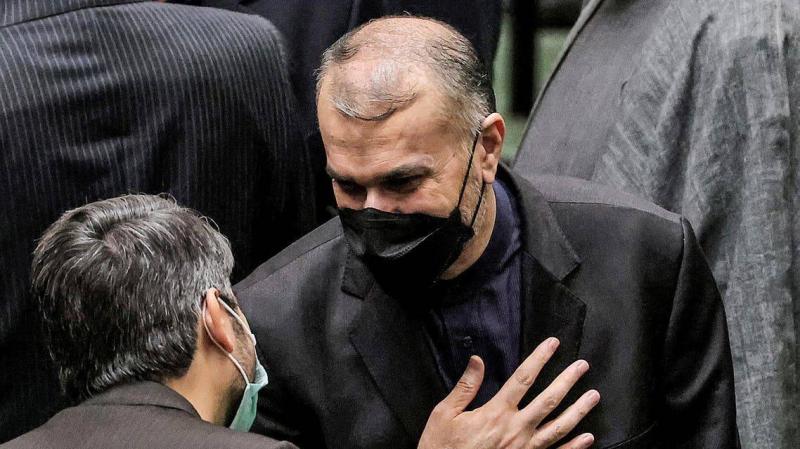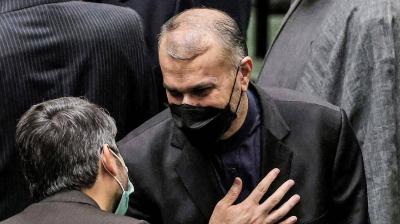As the judicial-bank conflict continues for political reasons, Lebanese crises are expanding further. Fuel crises are becoming increasingly recurrent, with no solutions or settlements in sight. While efforts focus on the electoral file through the formation of lists and preparation for electoral battles, regional conflict over Lebanon intensifies. Anticipating the return of Gulf ambassadors to Lebanon, Iranian Foreign Minister Hossein Amir Abdollahian's visit concentrated on several points, according to political sources reported by "Al-Anbaa" electronic newspaper.
The first point was clear: there would be no concessions to Saudi Arabia and Gulf states in Lebanon, as confirmed by Hezbollah's recent statement. The second point concerned Abdollahian's efforts to organize all his allies on the Lebanese stage, reassuring them that an agreement with America would not lead to Iran abandoning them, but rather would enhance their role in Lebanon. The third point highlighted Abdollahian's advice for political calm during this phase, awaiting the parliamentary elections, given Hezbollah's calculations suggesting it could win these elections.
The fourth point was Abdollahian informing President Najib Mikati that Iran is ready to invest in Lebanon's electricity and oil sectors, expressing Iran's readiness to build power plants and assist in oil exploration. "Al-Anbaa" electronic information confirms that Mikati told Abdollahian that Lebanon welcomes this proposal, but currently no agreement can be signed due to sanctions on Iran. However, after the lifting of sanctions, this could be feasible.
In this context, sovereign sources through "Al-Anbaa" electronic noted that Hezbollah has begun preparing for all potential scenarios and challenges following the parliamentary elections. It believes that if it manages to win the elections and secures a parliamentary majority, it will present its opponents with one of two options: either threaten them with electing Gebran Bassil as president or postpone all entitlements awaiting a regional and international settlement, allowing it to impose its terms regarding constitutional amendments and system changes.
Accordingly, the sources emphasize the importance of uniting the sovereign line to win the elections, gain the parliamentary majority, and prevent such a steadfast scenario that would deepen the country's crises and exacerbate its collapse. Commenting on Iran's offer to help Lebanon, member of the Forces of Lebanon bloc, MP Joseph Iskander, pointed out that Iran is unable to help itself, suffering from various crises related to oil, electricity, and more, thus questioning how it can assist Lebanon.
In an interview with "Al-Anbaa" electronic, he stated, "No country that has dealt with Iran has escaped misery, corruption, and collapse, Venezuela being a prime example; thus, there is nothing good in engaging with Iran." He further noted that "Lebanon cannot return to normalcy in its economy, politics, and sovereignty except through its independence from the Iranian axis and adopting a principle of neutrality while establishing the best relations with Arab countries. In this context, the return of Gulf ambassadors restores balance to Lebanon."
Iskander concluded that the Iranian minister came to Lebanon to inform his allies about recent developments in Vienna and to issue them orders. Amid this scene, the crucial anticipation revolves around the Arab stance on Lebanon following recent communications that led to the Gulf's return to Beirut, starting with the return of the Saudi and Kuwaiti ambassadors and the intention to provide assistance on multiple fronts, especially humanitarian aid.




